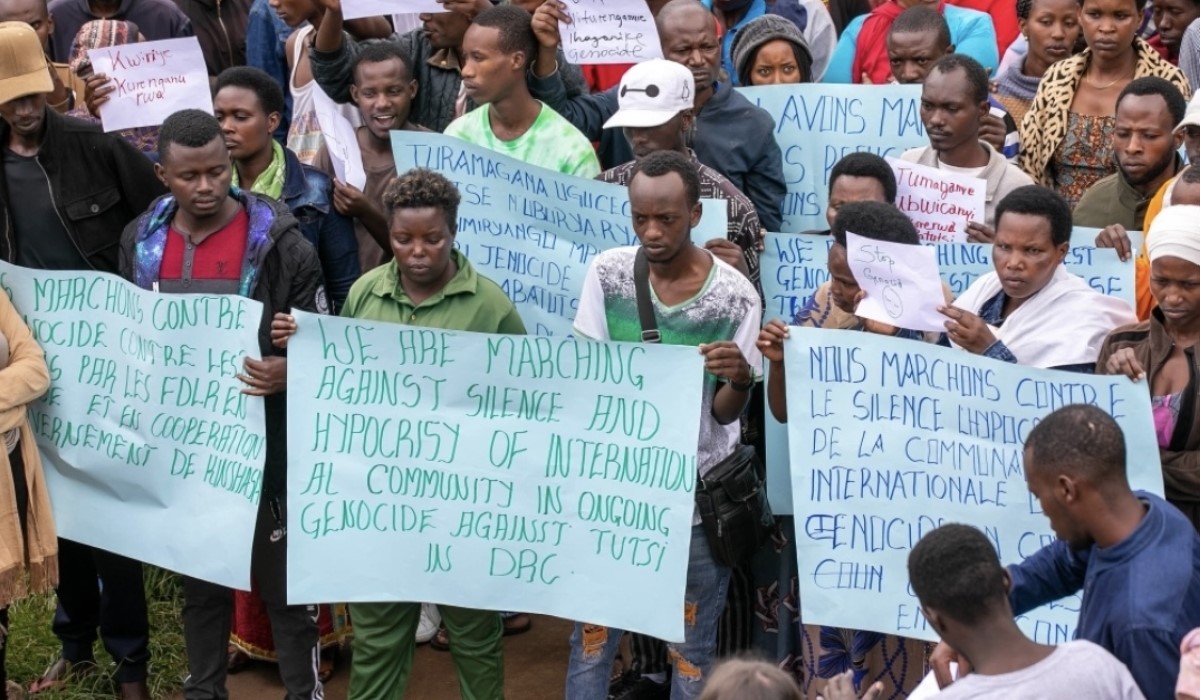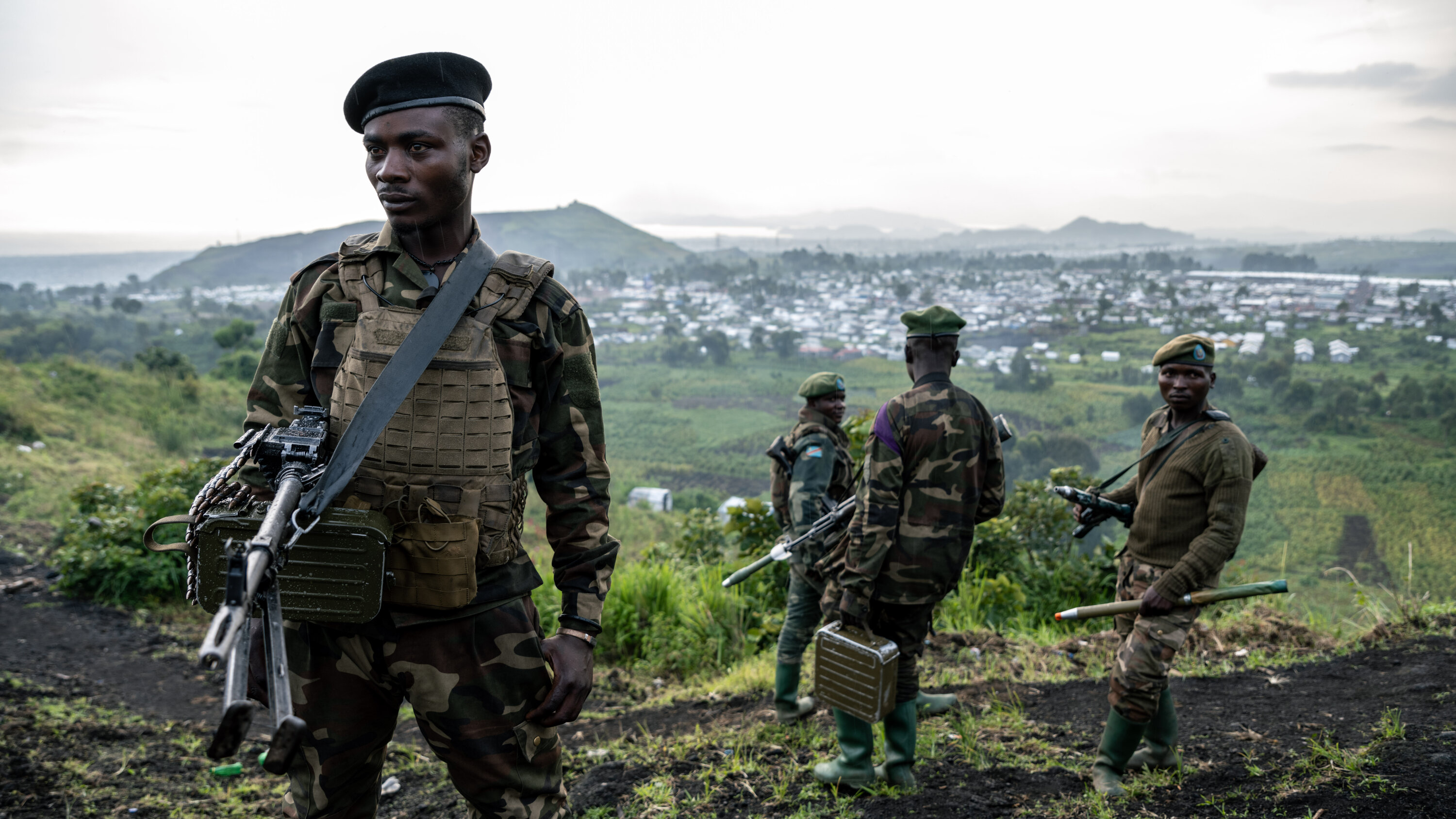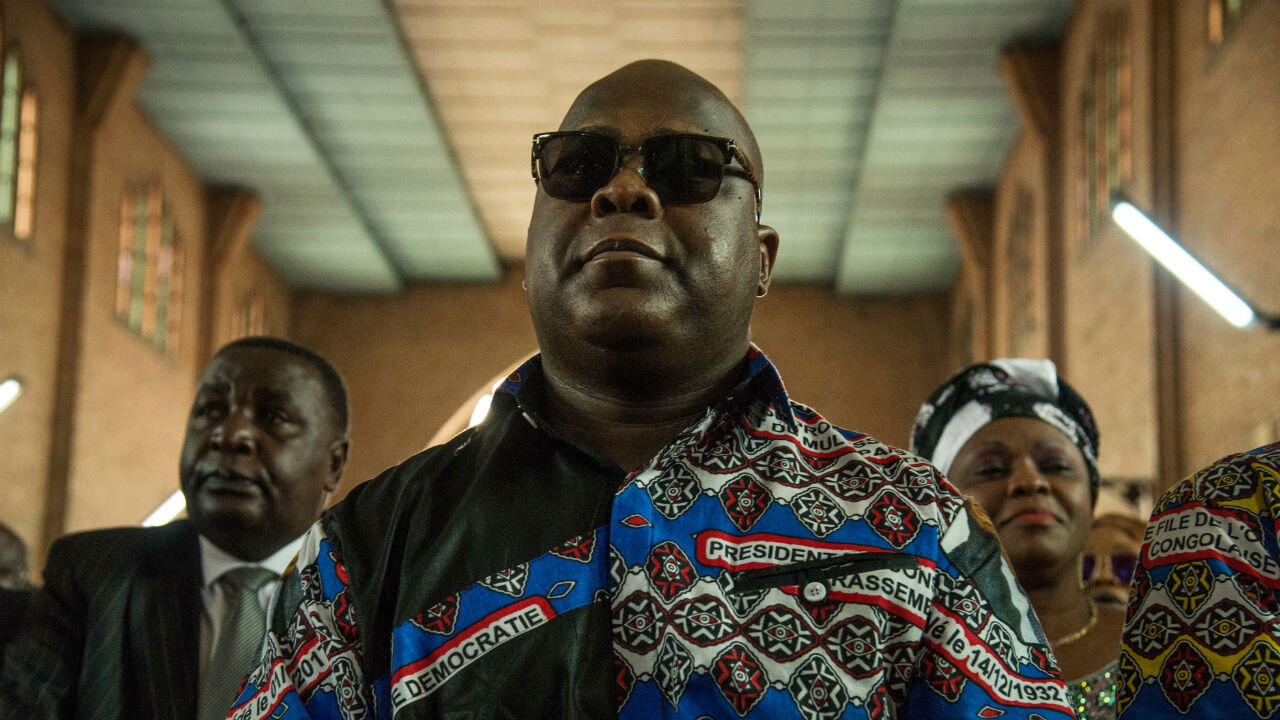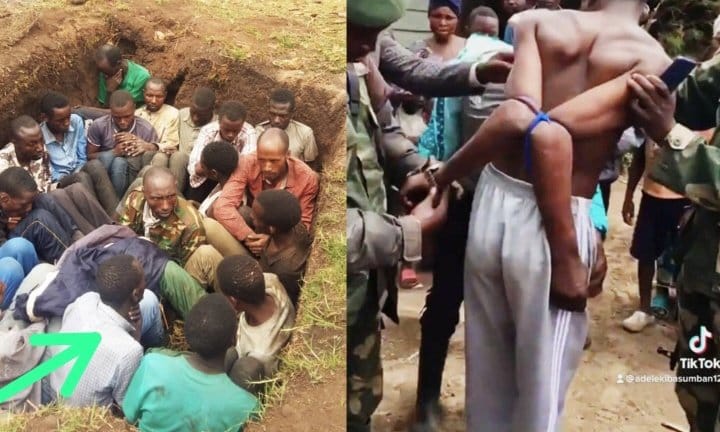Regional
DRC: UN must do more to counter state sanctioned hate speech against Congolese Tutsi

Thousands of Congolese refugees at Kigeme Refugee Camp in Nyamagabe district, Southern Rwanda, protested against the genocidal violence committed against Congolese Tutsi in eastern DR Congo. The protest took place on December 12, 2022.
On June 18, the United Nations
marked the International Day for Countering Hate Speech globally. In a
statement released, UN Secretary General Antonio Guerres noted that
governments, local authorities, religious, corporate and community leaders have
a duty to invest in measures to promote tolerance, diversity and inclusivity,
and to challenge hate speech in all its forms.
“We have seen this play out
from Nazi Germany to Rwanda, Bosnia and beyond. There is no acceptable level of
hate speech; we must all work to eradicate it completely,” the UN Secretary
General said.
Hate speech is a marker of
discrimination, abuse, violence, conflict, and even crimes against humanity.
Although the UN Secretary General talked about countries where hate speech led
to genocide, his statement ignored to mention the hate speech against the
Congolese Tutsi going on in the Democratic Republic of Congo (DRC). Government officials, politicians, security
organs and civilians openly refer to the Congolese Tutsi as foreigners and enemies
who deserve to be killed. Indeed, the impact of hate speech has been felt in
eastern DRC where hundreds of Congolese Tutsi have been arrested, tortured and
killed.
Distressful videos have been
circulating on social media showing mobs lynching Tutsi civilians, and cutting
their flesh and eating it while boasting in front of the cameras.
Can the UN Secretary General
imagine the trauma left to relatives, parents, spouses, siblings of the
innocent people killed in such a horrendous manner?
Hate speech, lynching and
cannibalism against Congolese Tutsi have gone on for more than three decades
yet the UN and the international community remains indifferent.
Hate speech and acts of
dehumanization are precursors to genocide. States have an obligation under international
law to prevent and combat incitement to hatred and to promote diversity, mutual
understanding and solidarity.
In DRC, hate speech is state
sanctioned and therefore, goes on with impunity. Congolese President Felix
Tshisekedi and his government must be held accountable and compelled to stop
the looming genocide against Congolese Tutsi.
In countries mentioned by the
UN Secretary General where Holocaust and genocide happened, hate speech was the
precursor and this should have been a hard learnt lesson to the UN to act
timely to avert Genocide against Congolese Tutsi in DRC.
In January this year, the UN
High Commissioner for Human Rights Volker Turk warned of rising hate speech in
DRC and yet no concrete measures have been taken to avert the situation.
"I am very concerned
about the rise in ethnic-based hate speech and incitement to violence in the
Democratic Republic of the Congo," Turk said. He observed that hateful,
dehumanizing and inciteful rhetoric is abhorrent and can only deepen tension
and violence in the DRC itself, as well as putting regional security at risk.
When the UN group of Experts
(UN GoE) as well as MONUSCO make their reports on the situation in eastern DRC,
the issue of hate speech is simply mentioned in passing, or even not mentioned
at all as a major security threat.
For the UN GoE, it is a big
shame to see that they spend more of their time and energy on investigating
mineral resources and their trade routes whereas countless people are dying due
to hate speech and ethnic violence against Congolese Tutsi.
One can conclude therefore,
that if the UN investigators spend more time concerned with DRC mineral
resources and at the end they get their pay cheque, then this is what their
masters are interested in.
This also brings the
conclusion that the UN is more concerned about the DRC mineral resources than
the lives of people dying because of ethnic discrimination.
There is urgent need for UN to
investigate all reports of hate speech against Congolese Tutsi and hold those
responsible to account. Mere condemnation without actions is not deterrent.
Secondly, the UN must investigate the root causes of the hate speech, discrimination and killing of the Congolese Tutsi and work towards finding a lasting solution to the problem.






